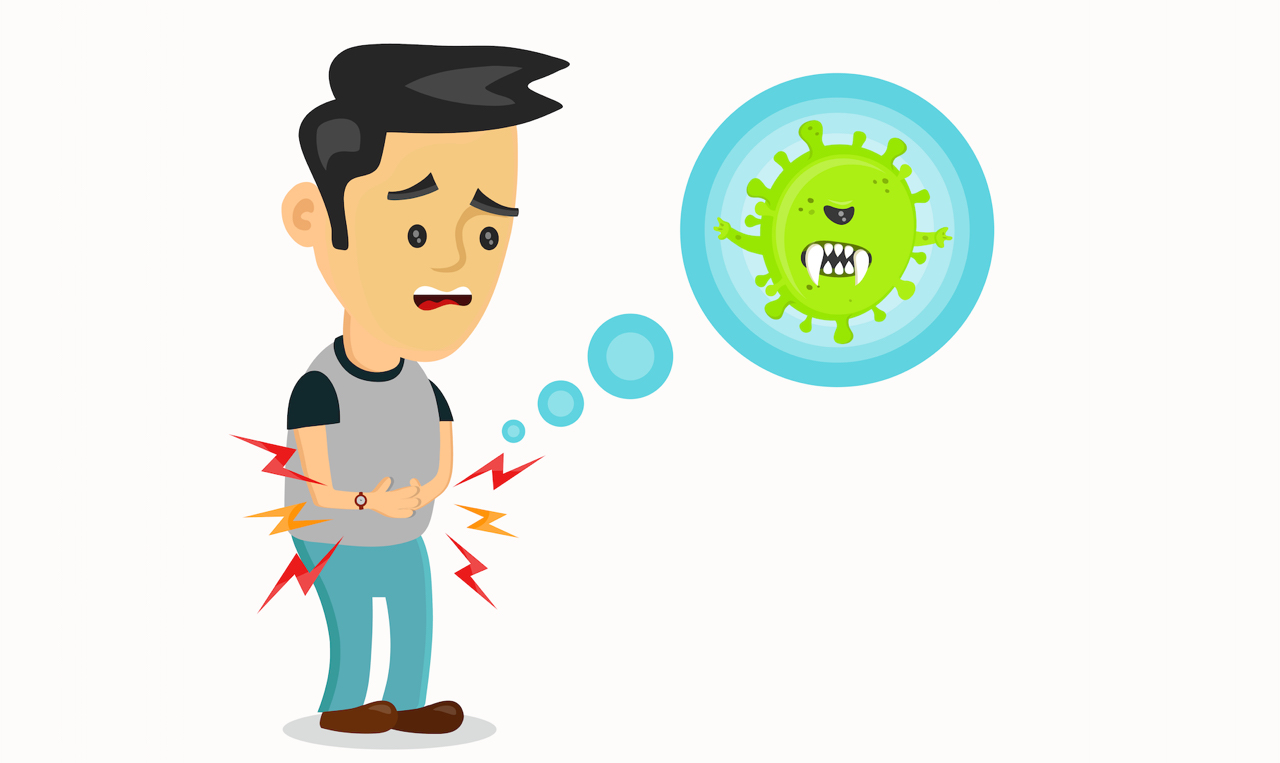There’s been another outbreak of runny tummies at your child’s aftercare – what’s causing it, and how do you prevent it from happening again and again?
Rotavirus is the most common cause of serious diarrhoea among babies and toddlers, so the chances are good that this is what’s triggering the runs. Rotavirus is highly contagious, and affects babies and young children, causing nasty bouts of diarrhoea, vomiting, fever and tummy ache.
Rotavirus infections spring up quickly, especially where a lot of children are gathered together, for example at aftercare or crèche. The virus spreads quickly through contact with the stools from an infected child, even when people do their best to keep things hygienic and sanitary. The good news is there is there are a number of vaccines available to help protect against rotavirus, so speak to your paediatrician if it’s an ongoing issue with your child. Depending on the brand of vaccine, it can be administered from the age of 2 months, and an infant usually needs 2 or 3 doses.
What are the Symptoms of Rotavirus?
We spoke to Hello Doctor’s Dr Russell about the symptoms of rotavirus, as well as other important information you need to know about it. Here’s what he had to say:
“Vomiting is often the first symptom, usually followed by a fever and severe diarrhoea. Your child might have episodes of diarrhoea on and off for a week or so, or they could suffer from severe diarrhoea for up to 8 days. Either way, the most important thing here is to make sure your child stays hydrated, as children can become dehydrated very quickly. Keep your eyes on them!”
Is Rotavirus Dangerous?
Diarrhoea, especially when it occurs alongside vomiting and fever, is a huge risk factor, as babies and toddlers can become dehydrated very quickly. It’s important to keep feeding your baby breast milk or formula, and watch closely for signs of dehydration, such as having only 1 wet nappy in a 12-hour period.
Find Out More about Rotavirus
If you want to talk to a doctor about the rotavirus vaccine, or get trusted and professional medical advice, you can do it at any time! Simply sign up on our website. download the free Hello Doctor app from the Google Play or iTunes store. Then you can ask our doctors a question via text or call, anytime, anywhere!
How to Identify and Treat the Rotavirus Bug
Your doctor will diagnose rotavirus based on your child’s symptoms, and a test on a stool sample might also be done to confirm the diagnosis, although this is usually only done if your child has any other health conditions which make it necessary. Keeping your child hydrated and comfortable are the most important steps in treating rotavirus. Plain water won’t provide the right electrolytes or nutrients your child needs if they have diarrhoea or vomiting, and your doctor may recommend an oral rehydration drink especially for babies and children. Always check with your doctor before giving your child any over-the-counter medication, and don’t give children sports drinks as they don’t have the right balance of nutrients their bodies need.
Rotavirus Dehydration Danger Signs
Babies or young children need medical treatment in a hospital if they become severely dehydrated. Call your doctor or go to the emergency room immediately if your baby has any of these signs of severe dehydration:
• A lack of interest in playing and extreme sleepiness – hard to wake baby up
• Sunken eyes without tears
• A dry mouth and tongue.
• A sunken soft spot on top of the head.
• A rapid heartbeat and fast breathing
• No wet nappies in more than 12 hours
Although it’s difficult to prevent children from catching rotavirus, the vaccine is a good start. Personal hygiene also plays an important role in protecting children from all sorts of germs – sterilising bottles and teats, washing your hands thoroughly and making sure that changing surfaces are cleaned properly.

